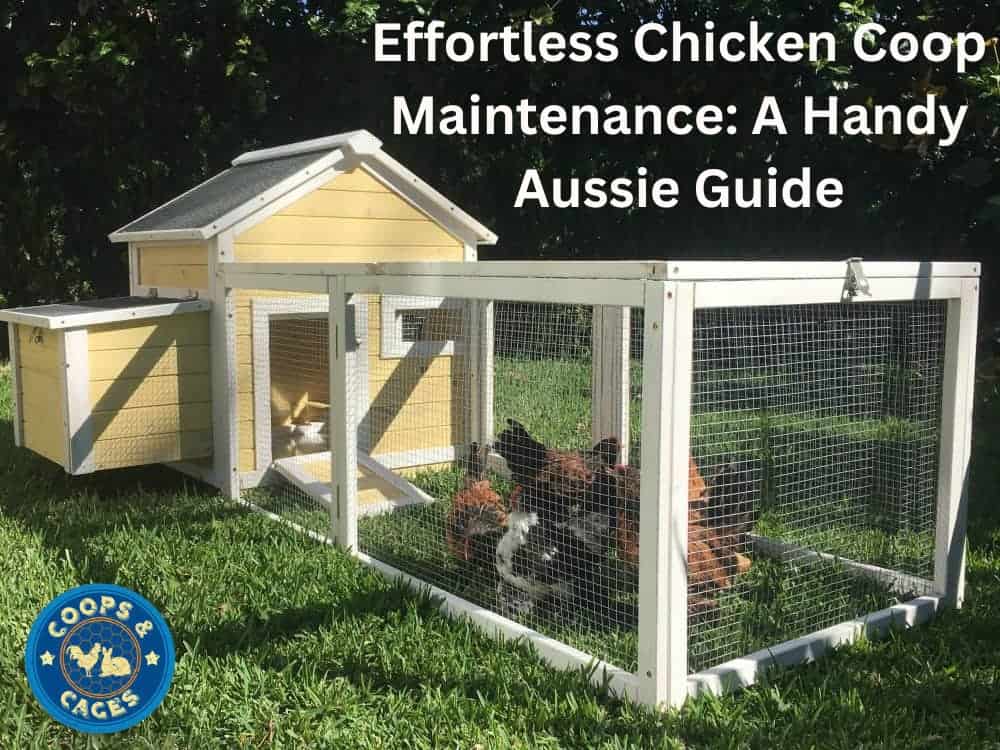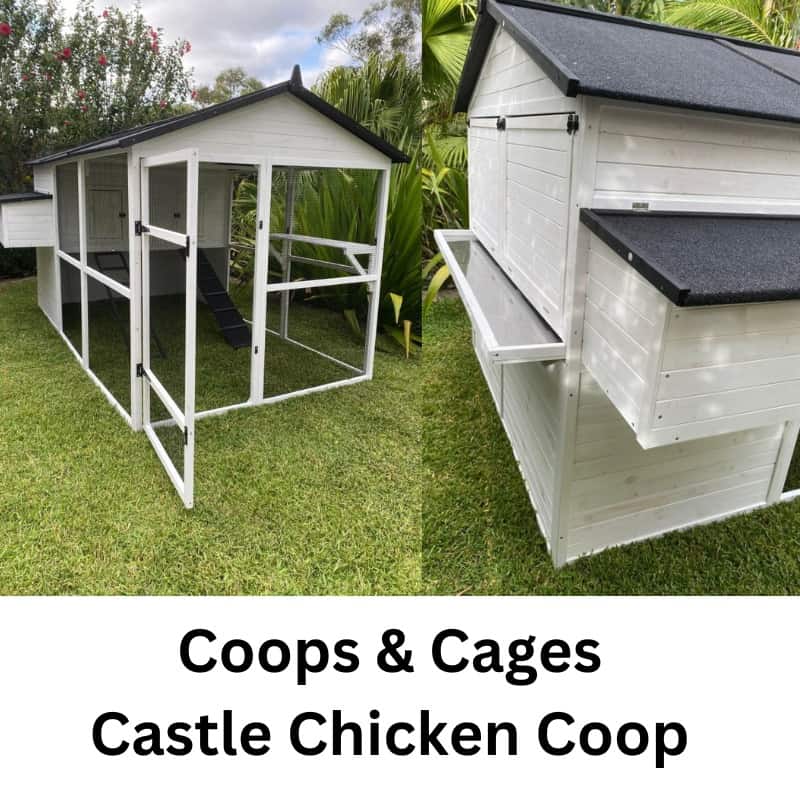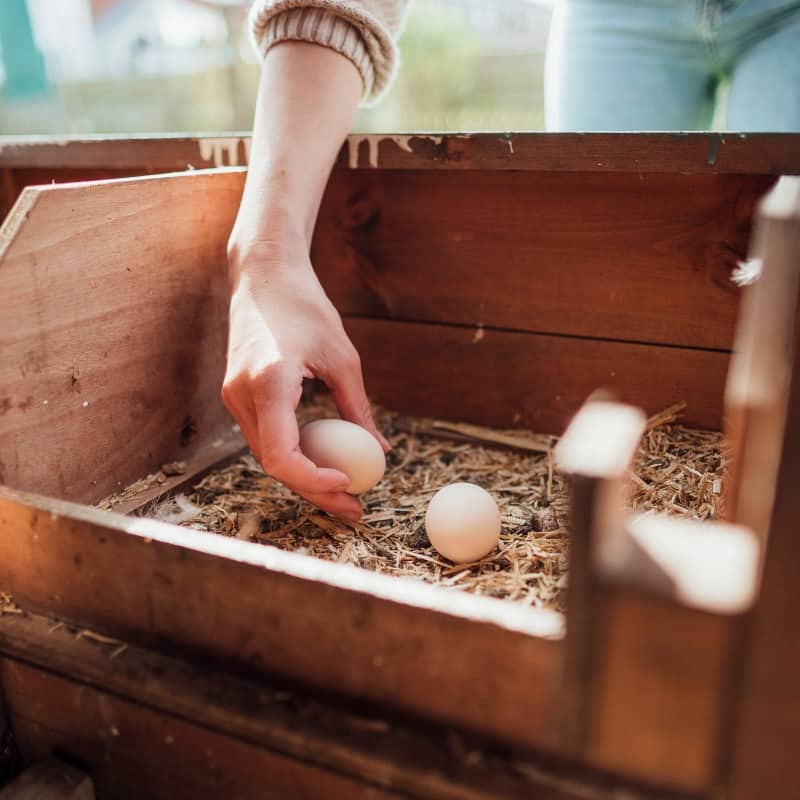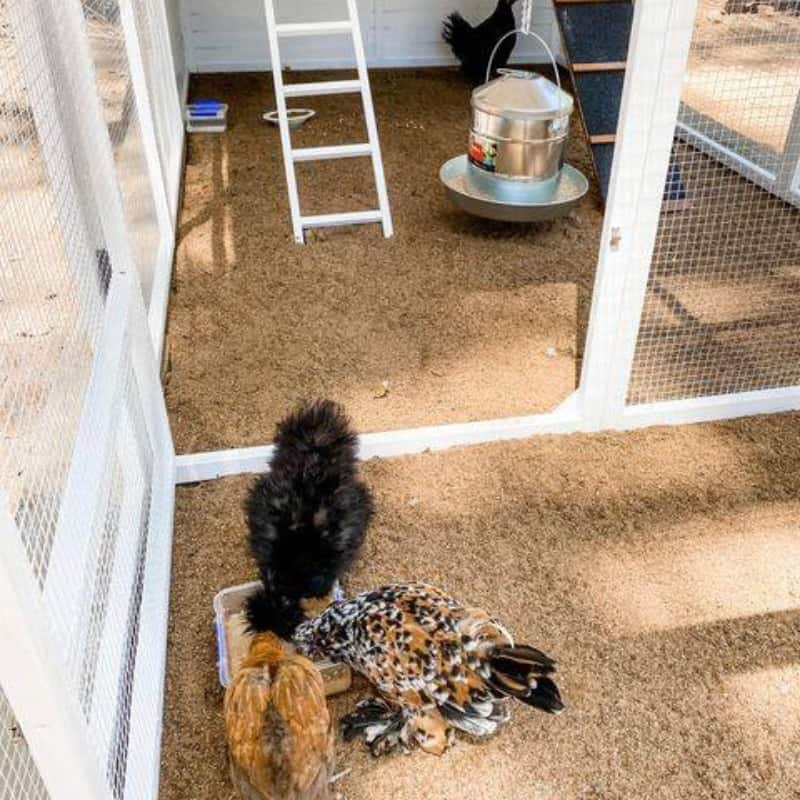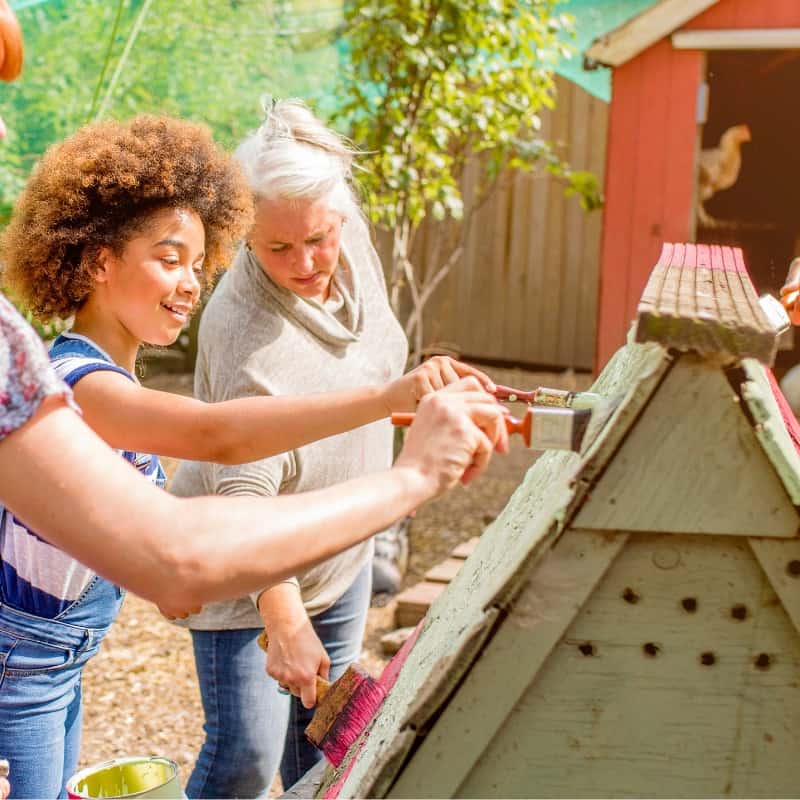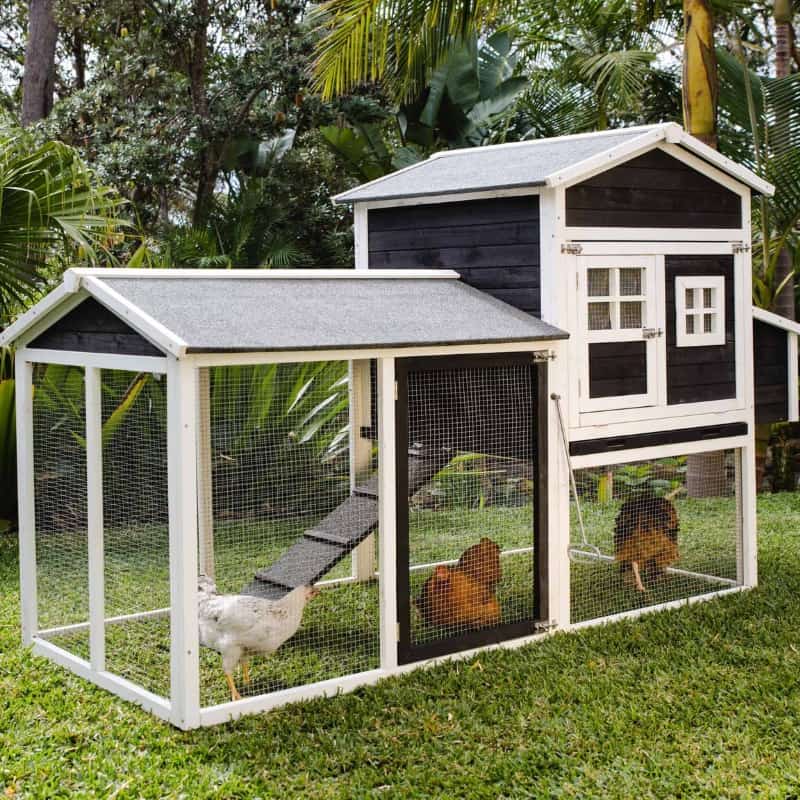Chickens, How To Do Things, Interesting
Effortless Chicken Coop Maintenance
Chicken coop maintenance, although sometimes overlooked, plays a vital role in keeping our backyard birds healthy and happy.
It’s not just about cleanliness or predator protection; it involves making sure they have adequate ventilation, appropriate temperature levels, and more!
Ready to give your feathered friends the top-notch care they deserve? Let’s not waste any more time and jump straight into these practical tips for effective chicken coop maintenance!
Choose the Right Chicken Coop for Low Maintenance
If you’ve ever kept backyard chickens, then you’re aware of the happiness they can bring. But let’s be honest; their coops need some upkeep. Opting for a fuss-free chicken coop isn’t as difficult as it may seem.
First off, size matters. Bigger coops give your birds more room to move and help reduce cleaning frequency because droppings are spread out over a larger area.
A large coop like the Castle model, for example, offers ample space for an average adult to walk into. Materials used in construction also play a significant role in maintenance levels.
Opting for rot resistant timber ensures longevity and less frequent repairs due to wear and tear. Access doors and a pull out floor tray also allow for ease of cleaning.
Daily Chicken Care Tasks
Keeping an eye on your chicken coop’s condition along with regular maintenance is just as vital as the regular feeding and care of your chooks.
Small issues can quickly escalate into bigger problems if left unchecked, but a daily checklist of chicken care requirements can prevent this:
Check For Eggs:
Collect eggs daily to prevent them from getting dirty or broken. Make sure to handle the fresh eggs gently to avoid cracking.
Provide Fresh Water:
Ensure that your chickens have access to fresh and clean water at all times. Refill water containers daily- I find my chickens drink on average 400ml daily and more during warmer months.
Feed your Chickens:
Provide a balanced diet by feeding your chickens with appropriate poultry feed daily. Remove any uneaten food to prevent pests.
Lock Up At Night:
In the evening, ensure that all chickens are safely inside the coop and securely lock the coop to protect them from nocturnal predators.
Observe Behaviour:
Spend some time observing your chickens to ensure they are behaving normally and not displaying signs of distress or illness.
Weekly Chicken Coop Maintenance
Clean and Replace Bedding:
Remove soiled bedding and replace it with clean and fresh bedding material. Bedding such as straw or wood shavings in the nesting boxes is a great idea as they absorb waste effectively and control odour.
A properly maintained deep litter method may last longer between cleans.
Scrub Water Containers:
Thoroughly clean waterers and scrub to remove any algae, debris, or contaminants that may have accumulated during the week.
Inspect and Repair Coop:
Regularly inspect the coop’s structural integrity, looking for any signs of damage or wear. Damaged areas may allow predators access while worn-out parts could potentially injure your feathered friends.
Look for issues such as cracks in the wood, rusting metal parts, holes in wire fencing, or loose hinges on doors and make any repairs immediately.
Look for Signs of Predators:
Look for signs of attempted predator entry, such as holes or scratches. Ensure that all locks and latches are secure.
Monthly Chicken Care Tasks
Replenish Supplies:
Stock up on essential supplies such as bedding material, feed, and any medications or supplements your chickens may need.
Trim Vegetation:
Trim back any overgrown vegetation around the coop to prevent it from becoming a hiding place for predators, and prevent branches from damaging your coop.
Yearly Maintenance Tips
Recoat Timber:
If like mine, your chicken house is made of timber, it may begin to show signs of weathering and fatigue. Consider an annual touch-up with an exterior paint or stain to significantly extend its lifespan.
Replace Locks and Latches:
Check all locks and latches and replace any that are rusting or no longer working effectively.
Keep Your Chicken Coop Dry
Moisture and dampness in your chicken house can lead to mould growth which affects air quality and may harm your chickens’ respiratory systems.
The best way to ensure dryness is by choosing materials that are weather-resistant and quick-drying when setting up your coop. A raised floor design helps too, as it lets air circulate underneath reducing condensation build-up.
Provide Adequate Ventilation
Proper ventilation is crucial when it comes to maintaining a chicken coop. Effective airflow removes harmful gases, moisture, and odours, preventing mould growth and maintaining a clean, comfortable environment.
Ventilation also regulates temperature, preventing heat stress during hot weather and minimizing condensation in cold conditions. Prioritising ventilation ensures a safer and more comfortable living space, ultimately making coop maintenance more efficient and your chickens healthier and happier.
FAQs in Relation to Chicken Coop Maintenance
Are Chicken Coops High Maintenance?
Chicken coops can be relatively low-maintenance with proper design and regular care routines.
How Often Do You Need To Clean A Chicken Coop?
In Aussie climates, it’s a good idea to give the coop a thorough clean every week or two. Regular spot cleans also help.
How Often Do You Need To Clean The Floor Of A Chicken Coop?
The floor needs regular attention – clear away droppings and replace bedding as needed for happy hens.
How Often Do You Change The Straw In A Chicken Coop?
Toss out old straw weekly or whenever it gets wet or mucky. Clean straw keeps your chickens healthy and comfy.
Jordan’s Wrap
Effortless chicken coop maintenance is achievable with the right strategies. By prioritising cleanliness, functional coop design, and regular tasks, you can save time and effort while keeping your flock healthy and happy.
This approach not only simplifies upkeep but also enhances your overall chicken-keeping experience. So, embrace these tips, and check out Coops and Cages variety of chicken coops focused on easy access, aiding in the upkeep and cleanliness of your coop.



